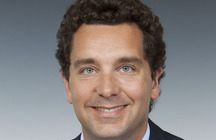Edward Timpson – 2016 Speech to Virtual School Heads
Below is the text of the speech made by Edward Timpson, the Minister of State for Children and Families, in York on 22 March 2016.
Thanks Alan for that warm welcome. The first thing I want to do is reassure you that I do really exist! Those of you who have attended this event before will know that my presence at your more recent annual conferences, for reasons beyond my control has, perhaps ironically, been virtual and through a pre-recorded message.
So, it’s a particular pleasure to be here with you today, a little croaky, but genuinely in the flesh and at a time when, having already achieved a significant amount as a body of professionals, you’re looking to be even more ambitious for your role and for the education of children in care.
I’d also like to take the opportunity to join others in thanking York St John’s University for hosting this conference and to everyone, especially Alan and Jane, who’ve been beavering away to make sure we have such a rich and varied programme on offer throughout the day.
From the sneak preview I’ve had of the next presentation, I can see that you’ve not let the grass grow under your feet since your role became statutory. As I’d expect, your 7 priorities are rightly ambitious.
And how exciting to be a virtual school head at a time when we’re planning and now delivering a raft of reforms to improve children’s social care more widely.
In January, we announced the setting up of a new social work body to ensure social work education supports a world-class social work profession.
We’re also developing a new Partners in Practice programme with the country’s best performing council and leaders, and we’re establishing a What Works Centre, so that social workers and others across the country, can learn from the very best examples of frontline social work.
And in all of this, you, as virtual school heads, have a key role to play in helping realise our ambitious once in a generation programme of whole system transformation of children’s social care.
Given the theme of today’s conference – “what can we learn from research and each other?” – it seems entirely appropriate it’s happening in a university. It’s true that we know more than we once did about the factors that impact on the educational outcomes of children in care
But, as the paper researched jointly by the Rees Centre and University of Bristol last year demonstrated, we need to know and understand more. So I’m encouraged that research and development feature in 2 of the 7 priorities the national body of virtual school heads has set itself over the next 12 months.
The importance of the virtual school head role
But why is this so important? Well, as many of you will know, virtual school heads are a passion of mine. And so is helping every child in care get the chance to fulfil his or her potential.
I know only too well from my own experience of growing up with foster siblings how easy it was for children in care to get lost in the system, for their education to take a back seat while other parts of their life were prioritised, something my father John decided to highlight in his agony uncle column in the business section of a national newspaper only yesterday – a shameless plug!
As virtual school heads you are changing that. I know that on so many occasions it’s you, as the virtual school head, who’s been that parent with sharp elbows, the educational advocate a child has needed.
It’s why as soon as I was elected to Parliament almost 8 years ago, I made it my mission to push the plight of children in care’s education to the top of the policy pile. And it’s why one of the first things I did as the Children’s Minister was to implement my own recommendation from a cross-party report and make the virtual school head role statutory – only the sixth statutory post that a local authority was required to have. It’s also why we introduced the pupil premium plus and gave the responsibility for its management to virtual school heads.
Celebrate virtual school head achievements
At your 2014 conference, the then Children’s Commissioner laid down a gauntlet at your feet. She asked you what you were going to do with your statutory status.
Your response? Well, you’ve risen to that challenge, both as individuals and as a professional body, to affirm loud and clear that we all have a responsibility to help looked-after children have high aspirations and to succeed, and you’ve also put some grease on those sharp elbows.
Within 2 years, your national body has taken you from a loose network of professionals that was not universally understood, to one where you have real currency and clout.
You’ve forged a working partnership with Ofsted at both a national level and across the 9 regional networks. And, although I know it may feel like a mixed blessing when Ofsted comes knocking to inspect local authority children’s services, they now want to know about the work of virtual school heads.
The work you’ve done over the last 2 years to foster links with Ofsted is significant and can only help in increasing your profile and status across children’s services and beyond.
You’ve also been building strong links with the Association of Directors of Children’s Services, and it was encouraging to see the joint policy paper you published with ADCS and the National Consortium for Examination Results, setting off a national conversation about improving outcomes for children in care.
I’m also pleased this work is being embedded through a new virtual school head website that will be a hub for good practice and robust peer review, 2 key elements to achieving an excellent service.
In the last few years you’ve also made much needed progress in raising awareness in schools about understanding children’s attachment and its impact on learning. Mike Gorman’s partnership work with Bath Spa University in this area has been nothing short of inspirational, and through the great work of Tony Clifford, the virtual head in Stoke, you’ve directly influenced the development of NICE guidelines on attachment.
And not only do virtual school heads now get invited to the Education Select Committee to give evidence on the mental health of looked-after children; it seems that the virtual school head model is being embraced by other countries – I know that, Ian Wren, the virtual school head from Melbourne, Australia is here, eager to share experiences and learn more from your endeavours.
So I wanted to be here today to pay tribute to your achievements, for your passion, your energy, your belief in making sure everyone does his or her very best to give children in care the support they deserve. It warms my heart to know that in every corner of the country there are dedicated professionals and carers championing their cause.
Conscious there is more to do
But of course – and you don’t need a minister to tell you this – there’s always more to do. None of us believe we’ve cracked it, making our roles redundant. Far from it.
So in reflecting on the theme of today’s conference I’d like to talk about 2 areas where I believe it’s possible to make even more of a difference: the first is understanding and applying research and evidence to practice – building on the learning from today’s conference; the second is increasing the focus on what it means to be a great corporate parent.
Using evidence-based research
We all know that the reasons why children who come into care don’t perform as well as their peers are both complex and enduring.
So if we’re serious about improving their educational outcomes, and helping them reach their potential, we need to avoid over simplistic conclusions and ensure that our policies and decisions are based on strong, reliable evidence.
Yes, some of the statistics surrounding the outcomes of children and care seem stark and troublesome at first glance, but we need to go much deeper to really understand what lies behind them.
That’s why I was so pleased to be at the launch of the joint research by the Rees Centre and University of Bristol last November on the educational progress of looked-after children in England. It was the first major study in England to explore the relationship between education outcomes and the care histories and characteristics of the young people looked after.
I’m sure you’ll have discussed the findings in your regions just as we’ve been discussing them with ADCS. I could talk about them all at great length as my officials know to their cost! But in the time, I have I’ll highlight 3.
Firstly, it appears that children who’ve been in care longer do better than those who have been in short-term care, therefore suggesting that care can provide a protective factor educationally. This is not the perceived wisdom out there in the public arena, an orthodoxy we now need to challenge.
Secondly, and this comes as no surprise, the research shows that stability is a strong indicator of educational attainment. In particular, the research revealed that:
– each additional change of care placement after the age of 11 was associated with one third of a grade less at GCSE
– young people who changed schools in years 10 and 11 scored over five grades less than those who didn’t
Serious food for thought, not just for virtual school heads, but the wider children’s social care workforce.
And thirdly, the other stand-out message for me in the research – one that on the face of it is blindly obvious but nonetheless under-appreciated – was that schools doing well for other pupils do well for children who are looked after.
That explains why the choice of school for every child in care is so important, and why that decision can have such profound consequences for that child in our care.
So what are the policy and practice implications from this comprehensive study for virtual school heads?
For me, research like this is all about helping you use the levers at your disposal to greatest effect.
You’ve got the pupil premium plus, looked-after children get priority admission to schools, and you’re one of the handful of statutory roles a local authority is required to have. Therefore I urge you to reflect on the research, and use this power – as I know you do every day – to bring about real, transformative change in the lives of children in care.
The good news is: we’ve already seen some outstanding, innovative, ground-breaking practice from virtual school heads restless in their pursuit of educational excellence for their children, refusing to accept watered down, tokenistic commitments from other professionals, prepared to use their powerful positions to push the boundaries of possibility.
That’s fantastic, but to help you achieve more for our looked-after children, I appreciate you need a sharper way of measuring the progress these children are making. So, for me, another significant conclusion from the report was that it would be better to measure the educational progress of looked-after children relative to those with the same prior attainment, rather than in relation to absolute attainment. I’m pleased and relieved to say that this conclusion reflects the policy position we’ve ourselves reached.
So, to take our thinking forward on this and on other strands of work emerging from what the research evidence is telling us – and in the spirit of working alongside each other – we’ve established an education working group co-chaired by a DfE official and Debbie Barnes, chair of the ADCS educational achievement policy committee.
That group, which also includes Alan Clifton as the chair of the national group of virtual school heads, and representatives from the voluntary sector, has already met twice and is establishing a joint workplan. A significant strand of its work will be focused on how we can use data better to help understand and measure improvements in what children in care achieve – and therefore, of course, track the impact of what we’re doing, and target our energies at the highest impact interventions. Because we all want to know that our efforts are achieving the maximum return in the form of outstanding outcomes for children in care.
Building partnerships with others
Another significant area for the group is around how you as virtual school heads, can work more closely with teachers and other school staff, and importantly with foster carers, to develop your understanding of the role they have to play in driving educational aspiration for looked-after children.
And, to that end, I was struck that the young people participating in the Rees Centre research said that teachers provided the most significant educational support to them. Yet teachers themselves felt they needed more training to do this effectively, particularly in supporting children’s emotional and mental health.
So I’m delighted that some virtual schools, like the Tri-borough, are rolling out training programmes to schools, something I would strongly support and encourage all of you to do too.
There’s also good work been going on in London through the Greater London Assembly Fostering Achievement as well as in other parts of the country to help foster carers develop the necessary confidence to engage with schools. After all, foster carers are the parent at the school gate, the parent able to reinforce at home what goes on in the classroom, the parent who can give you an invaluable insight into children under your wing.
I’m also pleased the government is funding a £3 million joint pilot between the Department for Education and NHS England for training single points of contact in schools and specialist mental health services.
Through 27 clinical commissioning groups and 200 schools the pilots will ensure that children have timely access to specialist support where needed.
And virtual school heads should quite rightly be at the heart of these developments, central to modelling the way in which their local authority, schools and even health professionals should live and breathe the principles of every good corporate parent:
– promoting a culture of high aspirations
– ensuring stability, and
– making sure everyone understands and is deeply committed to their role in helping every child in our care to succeed
Embracing new challenges
Looking a little further over the horizon, the eagle-eyed will have seen that schools white paper published last Thursday announced that we’ll consider changing legislation to extend your current role and the role and responsibilities of the school designated teacher for looked-after children to support children who have left care under an adoption order. Like children in care, adopted children face unique challenges at school. We know they often struggle to keep up with their classmates and I’ve followed with interest what some local authorities are already doing to support adoptive parents and their children.
Of course, you won’t be their corporate parent and so your role for this group would be quite different, more one of providing information and advice. But, we believe this is not only the next logical step, but the right thing to do.
In thinking hard about your future role and remit, I don’t doubt the scale of challenge in what’s being asked of you as individuals and as a collective professional body of virtual school heads, whether that’s spotting opportunities to tap into innovation, or trying to make meaningful links across professional disciplines and agencies.
But, I believe your very own National Association of Virtual School Heads (NAVSH), puts you in a strong position to take on those challenges and more.
Yes, you’ve set them an ambitious to do list: to commission and disseminate research that drives change; provide an independent and consistent voice for the people who know the most about children in care and to provide strong links between virtual schools across the country.
But it’s a vision I commend, because it’s one that’s about getting it right for virtual school heads so that you can get it right for children in care. It’s empowering, isn’t it, to know you can be agents of real, meaningful and life-long change for some of our most vulnerable children. It’s why we do what we do – to see before our very eyes a child’s life chances transform from what might otherwise be a hopeless, hapless future, to one full of possibility, positivity and purpose. Not that you need it, but you have my permission to go out there and make it happen!
Thank you.


